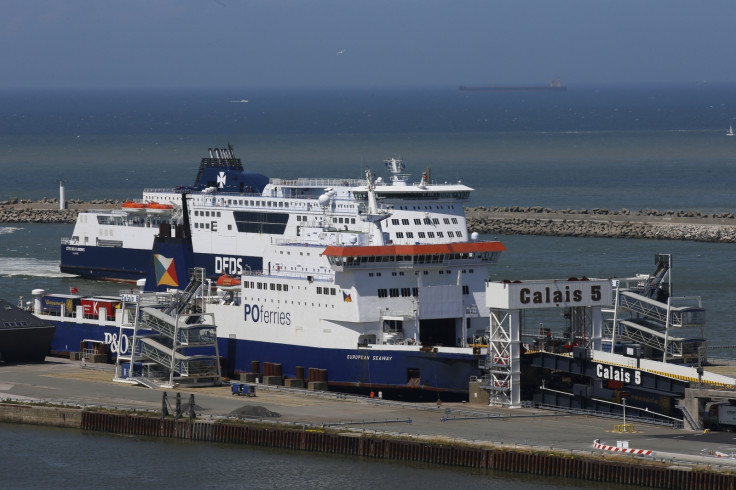France will demand Britain help pay for new Channel customs posts after Brexit
Theresa May will meet the French president in January.
Politicians in northern France have put pressure on the French president to call for the UK to contribute to the huge bill required to set up posts around English Channel ports needed after Brexit, it has been reported.
As one of the EU's busiest trade routes, the status of the Channel will be a key factor in Brexit negotiations.
French and British politicians have held meetings to discuss the Channel, with Jean-Paul Mulot, the regional envoy to the UK for Hauts-de-France saying the UK and the rest of the EU should share any costs of additional border infrastructure, the Telegraph reported.
"The goal of our region is not to steal British business. On the contrary, we want British business to thrive so that we continue to enjoy a close and mutually beneficial relationship after Brexit. A disruption would affect jobs in our region," he said.
"We are not trying to impose solutions on the negotiators but to provide them with a constructive perspective. If we solve the border issue in the Channel, and Ireland, we'll be 80% of the way towards an overall settlement," he told the Telegraph.
The border issue and how to handle the cross-Channel movement of goods will be on the agenda when Theresa May meets French President Emmanuel Macron for a summit in January, the paper reported.
Britain already pays for passport and border checks on French soil under the Le Touquet Treaty.

However key Tory Brexit proponent, Iain Duncan Smith said there was no "logical or legal" reason why the UK should foot the bill for extra Channel border posts.
"No other country is asking for money, not Holland, not Belgium, and Mrs May should remind Mr Macron that he stands to benefit from this arrangement because France sells more goods to us than we sell to them.
"Theresa May can smile sweetly at Mr Macron and tell him there will not be a penny more than has already been agreed. We have already said how much we will pay, and if the EU wants to give some of that money to France that's up to them," he said.






